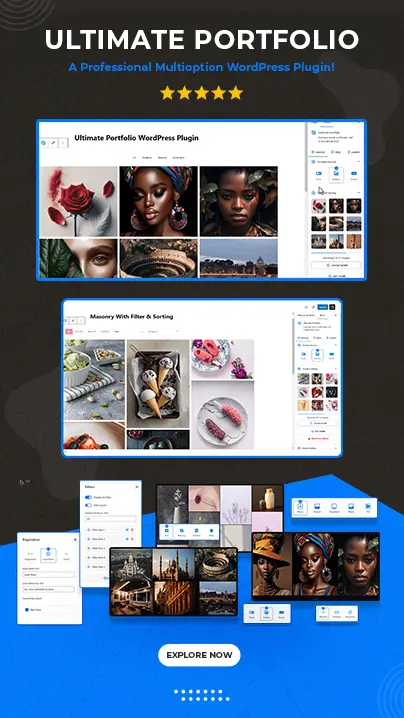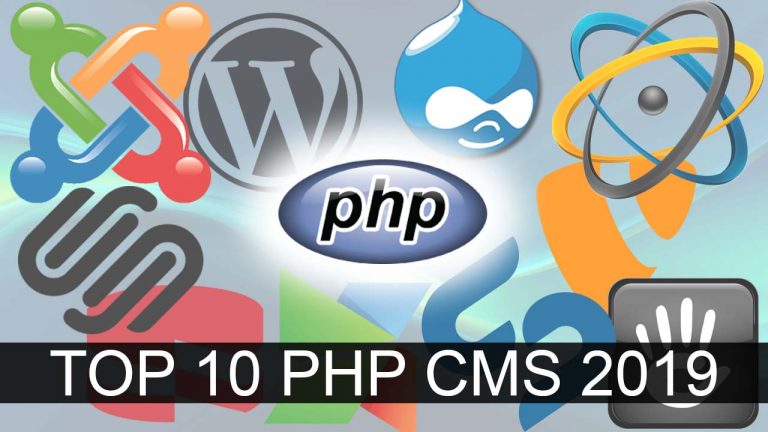
If you want to attract more visitors to your website or blog and you want them to engage or spend more time with your content, then you need very attractive content: Texts, pictures, videos, and graphics etc. Good content not only meaning just posting these stuff, but also maintaining it with consistency and quality. For publishing, updating and managing your attractive content, you need to visit you website/blog several times. Taking care of huge website is very difficult task and its almost impossible without having proper content management system (CMS). We are sharing here top CMS based on PHP to make your task easier.
1. WordPress
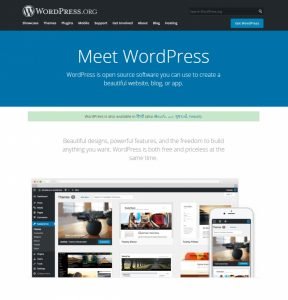
We’re willing to bet that you ’ve heard about WordPress. This CMS boasts the largest market share among and it’s easy to see.
WordPress Although was conceived blogging platform, The platform is easy and simple to use, and you can customize it to your content using wide range of plugins and themes
WordPress provides a top experience. you have to a powerful editor that enables format of your content, the platform also user registration, gets updates, and large and helpful community.
2. Drupal

Drupal is a free open source CMS written in PHP and is rated as one of the best platforms for e-commerce stores. It was first developed as a student community solution but later evolved as a full-fledged open source CMS. Drupal provides developers ease to develop highly optimized online stores with perfection. the platform enriches features of development app and preferred by most of the developers.
As uses WordPress plugins, Drupal modules to customized perform functionalities in websites. Moreover, the platform comes with a wide range of features and other options that make it one of the top CMSs in the market for application development. Many major organizations in the world including NBC, Harvard University, Tesla, Princess Cruises, MTV UK and others use Drupal for their web operations. The platform is also supported by a wide range of community which is continuously growing at a rapid pace all over the world.
3. Joomla
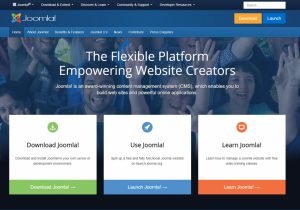
Joomla is a PHP based CMS for building portfolio and blog websites. WordPress with the comparison is not quite fair but the platform offers features adequate to top class dynamic websites. The platform providing developers an option to easily integrate their sites on preferred database systems. It is a powerful platform for developers for websites with advanced functionalities.
The CMS allows you to easily integrate your blog/website with the host within few seconds in one click. Further, building responsive websites(Works on all kind of devices) is quite easy with the platform. It also offers tons of extensions and cool designs which you could use preferably in your web apps and can improve its functionalities. That is why the platform ranks in the top 5 most used CMSs in the world and is used by leading brands including eBay, Barnes & Noble, IKEA, and many others.
4. Typo3

TYPO3 offers a huge community, which provides very quick and easy help for beginners with technical issue/problems or questions. There are also large number of professionals who specialize in TYPO3 support and provide very good agency services to business users.
A professional use of the high-performance content management system (CMS) requires expert knowledge. With this, even complex site structures with multilingual content can be soundly implemented. The wide range of functions availability in TYPPO3 ensures professional rights management at the enterprise level and provides support for all kind of business applications, such as CRM and ERP systems. On the other hand, it requires long training period and comparatively high administration effort.
Basically, the wide range of functions offered by TYPO3 makes it possible to implement any kind of project. But this comes at a considerable cost of installation, configuration, and maintenance. The popularity and good reputation of the software always contribute to its use. In this case, users are usually putting much more effort than they need to. If the entire range of functions offered by the enterprise CMS isn’t required, then website operators would generally be better served by a small piece of software with slim basic installation. For complex projects run by experienced IT specialists, though, TYPO3 is the optimal foundation for a successful online presence.
5. Squarespace

Squarespace is another well known CMS platform, and it started out at around the same time when WordPress started. The main difference between Squarespace and WordPress, is that Squarespace is not open source so you can’t download the software and install it on your own server.
Website builder, blogging platform and hosting service are integrated all together in this system . You just need to sign up for a subscription and Squarespace makes it easy to build a website from scratch with ease, which is obviously handy if you don’t have any previous web development experience, or if you want your website site up and running in a short space of time. Like WordPress, you can install different themes/templates and build a website using text, images, and videos.
6. SilverStripe

The main focus of SilverStripe, CMS products which allow technical website development tasks to be performed within a GUI and also focus with programming frameworks which allows no out-of-the-box content authoring application. The SilverStripe offers more flexibility to developers and removes complexity for content authors.
The core of SilverStripe is named the SilverStripe Framework. As with the rest of the platform, it is written in PHP (5.3) and takes full advantage of its object-oriented design capabilities such as name-spacing. The SilverStripe also provides a framework to website developers to build and wide range of websites. These websites are based on modern programming techniques including the model-view-controller (MVC) pattern and object-relational mapper.
SilverStripe generates markup code using a custom language for template which is based on W3C HTML5. It offers simple placeholders and conditional logic for task. SilverStripe is can be extended through modules, widgets, themes and custom code.
7. CakePHP

CakePHP requiring less coding skills and makes building net applications faster and easier. It provides contemporary PHP five.5+ framework able to adapt many different functions or activities of info access layer and a strong staging system that produces building each, whether big or small and sophisticated systems easier and tastier.
It is licensed with open source MIT license that makes it good to be used in industrial applications without any restriction. No complected XML or YAML files there so you can simply set up your info and you are able to bake. CakePHP comes with inbuilt CSRF protection, tools for input validation, SQL injection bar, and XSS bar, to make it more safe & secure to use.
8. ModX
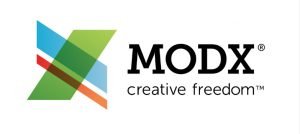
MODX Revolution is secure open source PHP CMS. It is the one of the world’s fastest, most flexible, scalable CMS platform. It has tons of customization options. Everything is depend on your creative vision, there is no restriction so you can go to any extent with no compromise. MODX is website management platform for people with creative vision who actually concerned for exceptional outcome with no-compromise style. It allows you to take over completely and control your web site and content, with the flexibility and ease to adapt to your ever-changing requirements.
9. Concrete5
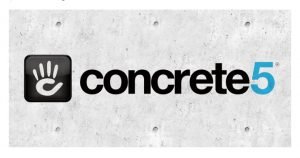
concrete5 is an Open Source CMS (Content Management System)
It makes running and managing an internet website simple. You can go to any page on your website and modify, concrete5 comes with editing toolbar offers you to change whatever you wish to change and update on your web site. No complicated manuals, no complex administration interfaces, its simple and ready to click on.
You can easily build online magazines, newspapers, eCommerce, small business web sites and all kind of other websites with this open source CMS. It comes with flexible and robust framework that can be used to buil sophisticated web applications in no time. This CMS is designed for both novice and expert developers.
10. PHP Fusion

PHP-Fusion is free and open-source web framework based on and MySQL and PHP. It is constantly growing because of its extremely collaborative system that has an integrated content management system (CMS) with many other features. To function, PHP-Fusion has to be installed on a locally hosted or remotely hosted web server.
This light weight open source was initially released in 2002. It comes with simple, comprehensive administration system interface and with tons of customization options. It can be easily fit to daily changing requirements.
